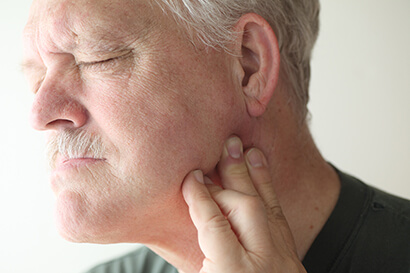Common Causes of Toothaches
All over the world, the most common reason patients seek dental help is to relieve tooth pain. Most frequently the cause of the discomfort is tooth decay. However, there are many other reasons, and identifying them may help prevent future toothaches.
Tooth decay
Decay is the most common cause of tooth pain. Tiny cavities that form in the enamel (outer tooth coating) are usually painless, but when the damage permeates the dentin (inner layer) the tooth then becomes very sensitive. As the decay advances, deeper into the pulp, the pain intensifies. If an infection develops the pulp tissue will die and a pus-filled abscess will form below the root of the diseased tooth.
An abscess may also be a sign of advanced gum disease. The inflammation and infection that comes with an abscess cause pulsating pain and throbbing. It can often be difficult to determine which tooth is in distress.
Periodontitis
Besides swollen, red and bleeding gums, a toothache can also be a sign of advanced gum disease. Infection leads to inflammation of the bone tissues and gum, loss of bone and dull aching pain. An abscess may form in the advanced stages that can be very painful.
Accidents and falls
Accidents and falls may lead to broken or fractured teeth. Although you may or may not notice the damage initially, it will cause severe pain once the fracture reaches the nerves in the pulp of the tooth. Even a shallow break can cause problems as bacteria and plaque accumulate in the opening and eventually cause decay.
Tooth grinding
Tooth grinding or bruxism can chip or wear down teeth. The act puts excessive force on supporting tissues and causes tooth, jaw and muscle pain.
Poor oral hygiene
Improper brushing and flossing can lead to plaque buildup, causing gums to recede or detach around the tooth, and the roots to be exposed. When this occurs, sensitivity to hot, cold and sour foods heightens, and acids cause further erosion since the roots are exposed.
Additional problems include crooked or misaligned teeth, impacted wisdom teeth or pain caused by orthodontic treatments. But sometimes, tooth pain is caused by something unrelated to the jaw or a tooth. Certain conditions in the body cause pain that appears to occur in the mouth. For instance, a sinus infection may result in an ache in the upper back teeth. Although rare, jaw or tooth pain may signal a heart attack. When in doubt, always consult your dentist.














